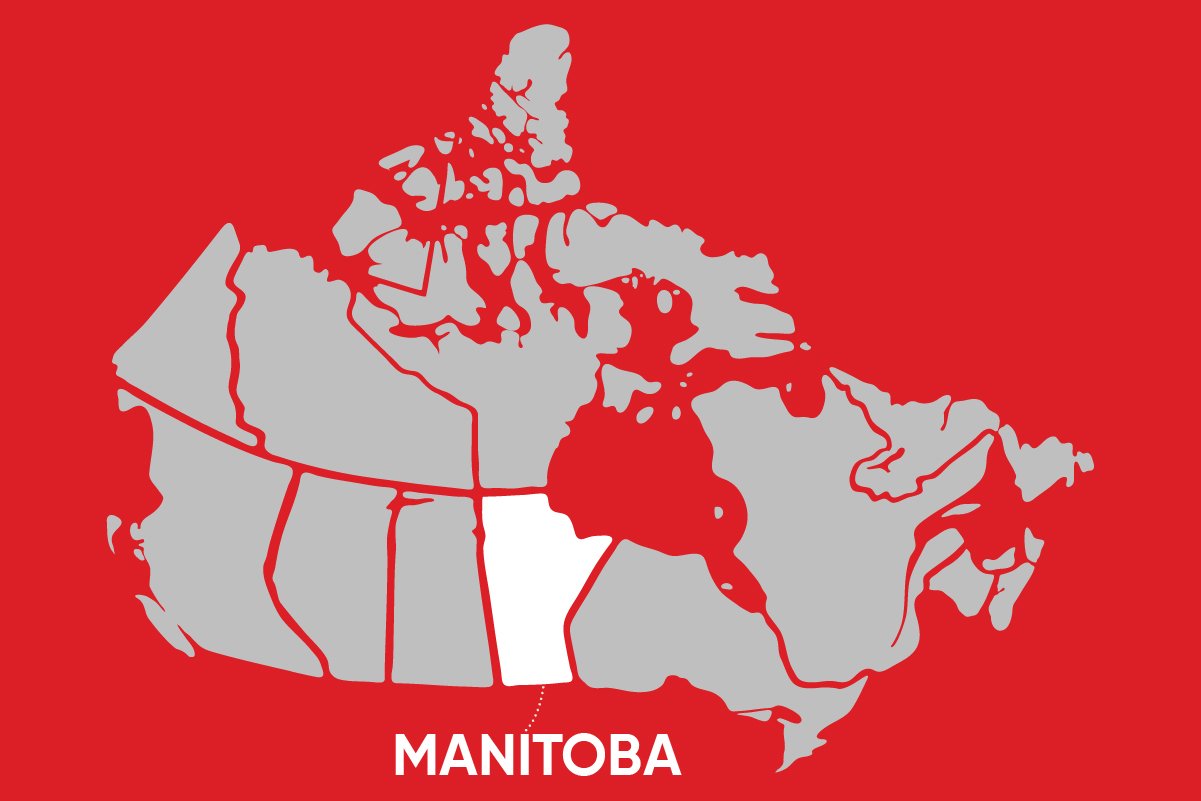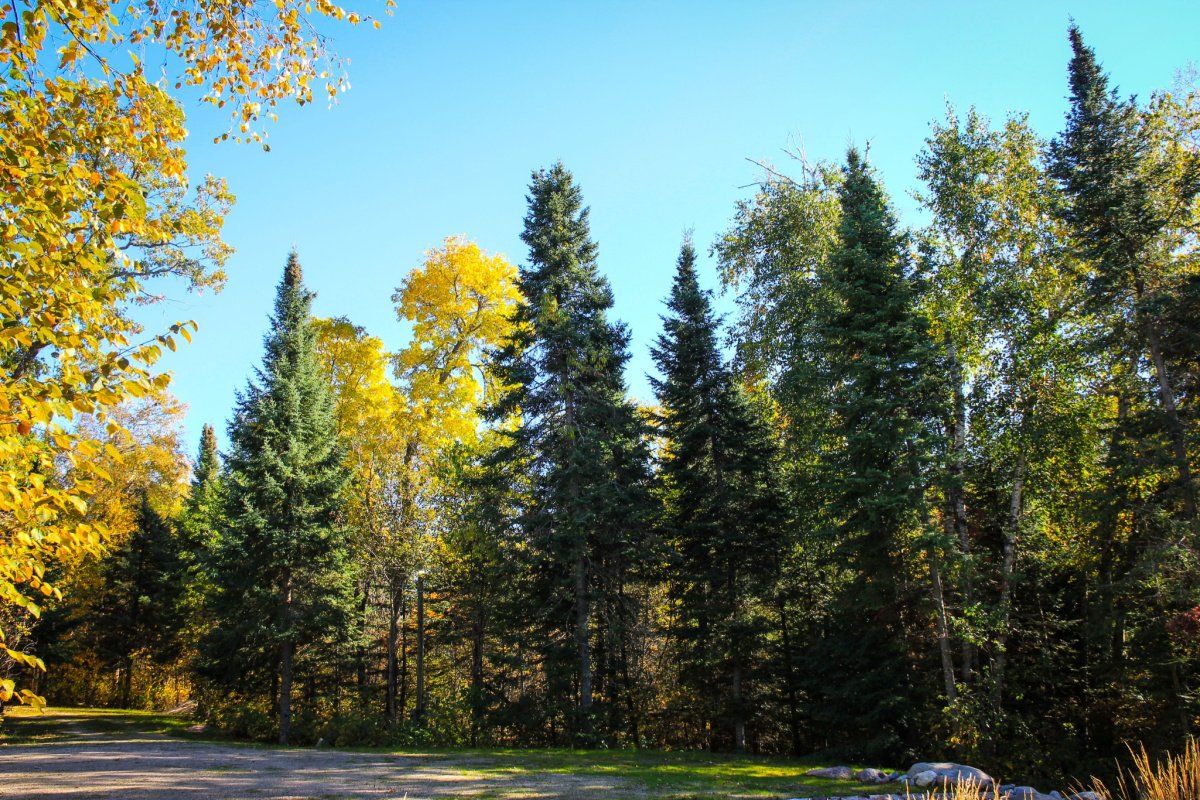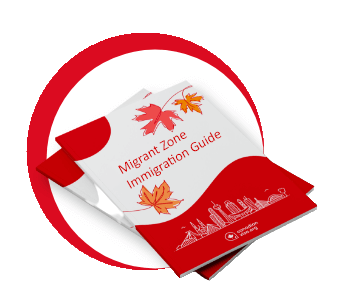One of Canada's central prairie provinces, Manitoba is home to many of Canada's fantastic attractions and hidden gems alike. With its proximity to Hudson bay, underground activities and large spaces of untouched wilderness, Manitoba is both a fantastic travel destination and the perfect place to call your new home
About Manitoba

Manitoba is a land of safe cities, clean air, and a huge variety of cultures and languages. There are over 200 languages spoken across the province!
Officially incorporated as a province by the Canadian Parliament in 1870, Manitoba has been welcoming immigrants for over a century to help build Canada into the country it is today. The province offers free public healthcare and education so your children can have a brighter future.
Besides being one of the more affordable provinces to live in, Manitoba is rich in local attractions and also offers many employment opportunities and entertainment options to its residents. No matter your taste, you will find the perfect place for you and your family in Manitoba.
Below, we discuss many of the major aspects of life in Manitoba to give you a good idea of what you can expect from the province
Where is Manitoba on the Map?

Manitoba is located between the other prairie province, Saskatchewan, and the province of Ontario. Because Manitoba has such a unique biosphere, it has over 80 provincial parks for visitors of all ages to enjoy the great outdoors. Explore Manitoba by canoeing, hiking, biking, camping, and fishing along with one of the many rivers in the province.
Manitoba Economy

Manitoba has a hub of diversified industries that have helped the province maintain the lowest unemployment rates in Canada since 2017. During this time, unemployment decreased by 10,500 jobs, the largest drop in 15 years according to a report by the Provincial Government of Manitoba's most recent Economic Review and Outlook.
If you're looking to work in Canada, you should know about some of the best and biggest industries that Manitoba supports.
First up is the Aerospace industry. Manitoba's aerospace industry is one of the largest in western Canada, employing over 5,300 experts in aerodynamic fields and exporting goods across the globe.
Because most of eastern central Manitoba is so fertile, it should come as no surprise that the agricultural sector is blooming in the province. Manitoba has more than 250 companies dedicated to food industries ranging from crop to equipment production.
Recently the province has launched a new immigration stream under their Business Investor Stream called the Farm Investor Pathway which will help boost the farming industry by allowing even more skilled workers to immigrate to Manitoba.
The province has another major industry and that is the construction industry. In 2017, there was an increase in labour income by 4.7%, allowing the average construction worker to bring home $41,000 a year!
There has also been a boom in the housing markets to keep up with the new demands of newly arrived immigrants and it looks like the business will not be slowing down anytime soon. The province is known as one of the most eco-friendly places in Canada thanks to its production of clean energy and sustainable development. Manitoba is further developing its geothermal and wind power energy production to ensure that more areas of Canada are supplied with a cost-effective, long-term energy supply of clean energy. The province further plans to invest a further CAD$15 billion in hydroelectric projects over the next ten to fifteen years.
Retail is another important industry in Manitoba that employs over 66,700 people. So it's not surprising that this accounts for a substantial 7.3% of the province’s entire economy.
As a result of this diverse array of local industries, there is a high demand for foreign skilled workers from many different types of backgrounds to fill the gaps in Manitoba's diverse labour market. If you work in an in-demand occupation, you have a far greater chance of landing a job in Manitoba, getting a Canadian work permit and possibly becoming a permanent resident via the Manitoba Provincial Nominee Program.
Find out more about Manitoba's in-demand jobs and how landing one can help improve your chances of moving to Manitoba here.

Climate of Manitoba
As one of the prairie provinces that has rolling hills and grasslands, Manitoba has some pretty cold winters but luckily it warms up very nicely during the Summer months. Manitoba is known for its humid summer days thanks to the Gulf of Mexico thousands of kilometres to the south that provides warm winds across the province. It is one of the sunniest provinces to live in, especially during Spring, when there are clear blue skies for most of the season.
Manitoban summers are relatively long for Canada, lasting just over four months. The summer starts around mid-May and ends in mid-to-late September. During the summer, Manitoba can reach peak temperatures of 27°C and lows of a comfortable 16°C. Unlike many other Canadian provinces, this is the time when Manitoba experiences the least amount of cloud cover, allowing you to experience and full summer in Canada.
The winters In Manitoba are far shorter than the summers, generally only lasting just over three months. It usually starts in late November and ends in early March. Manitoba's winters are often unrelentingly freezing with the temperature never getting warmer than -3°C. During this time, average daily lows can get down to -18°C and average daily highs during the colder months like December and January generally stay below -10°C
Because of this, Manitoba offers the best of both worlds - hot, humid summers filled with outdoor activities and suntans; and cold, snowy winters, providing you with the full winter wonderland experience
Cost of Living in Manitoba

If you want to live in Manitoba, you should know about the living costs to better plan your future in the province. The average cost of living in Manitoba is significantly lower than that of the larger Canadian provinces. Below, we can see how Manitoba's capital city, Winnipeg compares to Ontario's capital and Canada's largest city, Toronto
| Average Cost of Living (excluding rent) | Winnipeg | Toronto |
|---|---|---|
| Single Person | $1,183.88 | $1,326.81 |
| Family of Four | $4,226.32 | $4,838.25 |
Not only does Manitoba have an exceptionally low cost of living, but rent is also cheap compared to larger Canadian provinces. Here's what rent in Winnipeg is compared to rent in Toronto.
| Rent per month (City Centre) | Winnipeg | Toronto |
|---|---|---|
| Single-bedroom apartment | $1,089.21 | $2,259.40 |
| Three-bedroom apartment | $1,820.23 | $3,659.43 |
However, due to the cheap cost of living and rent costs, and the wide array of labour and unskilled work in the province, the average salary in Manitoba is lower than in some of the larger provinces. Here's what the average salary in Manitoba is like, compared to the average salary in Toronto:
| Monthly Salaries | Winnipeg | Toronto |
|---|---|---|
| Average Monthly Salary (After Tax) | $3,040.05 | $4,259.77 |
Source: Numbeo.com
Check out our Newcomer's Budget Guide to Canada to ensure you know exactly how far your money will go in Canada.
Immigration/Dedicated Visa

Because the province is always on the lookout for talented and skilled workers, it accepts over 15,000 immigrants each year. The province was the first to introduce the Manitoba Nominee Program, which can allow you to become a permanent resident of the province. Under the Manitoba Provincial Nominee Program, graduates, skilled workers, and entrepreneurs can immigrate to Manitoba if they have the right skills and experience.
The MPNP for Skilled Workers is used to select skilled and experienced workers who are needed in the local labour markets under four main categories. They are as follows:
| Manitoba PNP Categories |
|---|
| International Education Stream |
| Business Investor Stream |
| Skilled Worker in Manitoba Stream |
| Skilled Worker Overseas Stream |
All of these programs require applicants to have some sort of tie to the province before they can apply. This tie could be from previous studies at a local Manitoban educational institution, family ties, employment in the province, etc. Depending on whether you meet the other additional requirements, you could receive an Invitation to Apply for permanent residence in Manitoba.
Each program contains several smaller streams, which cover many different types of applicants. Find out more about each of the programs within the Manitoba PNP and how you can apply here.

Demographics
Manitoba is a hugely popular province thanks to its inclusive nature, which allows people from all walks of life to make this place their home As mentioned before, the Manitoban population speak over 200 different languages are across the province but most residents can talk to you in either French or English as both act as the medium of instruction. If you're unsure your language ability is up to the Canadian standard, here's a breakdown of the Canadian Language Benchmark - the system with which the Canadian government determines an immigrant's language proficiency.
According to the World Population Review, Manitoba's population is currently just under 1.4 million people, with a significant portion of that made up of immigrants. Manitoba has large immigrant groups from all over the world and is currently home to the largest concentration of Icelandic people outside of Iceland. However, the province is also home to large Filipino, South Asian, Chinese, Southeast Asian, Korean, Japanese, Arabic, Latin American and African communities.
The major religions in Manitoba are Protestantism, Roman Catholicism, Christianity, Christian Orthodoxy and Judaism. However, almost 20% of Manitobans have no specific religious affiliations
You can easily find a community that will welcome you into the province as there are many communities scattered across Manitoba.
Education

Life in Manitoba provides you with a welcoming community, a booming job market, and another great thing - excellent education.
There are five great options for international students who want to study in Manitoba - four of which are located in Winnipeg:
The University of Winnipeg
The University of Winnipeg offers a wide array of programs with small class sizes and an accessible downtown venue to allow you to enjoy your student life to the fullest. The university has students from over 68 different countries and accepts more than 600 international students each year.
The University of Winnipeg has the third-lowest tuition in Canada which is well below the average fees from many other educational institutions across the country. Here are some of the prices for international students hoping to study in Canada for the first time as undergraduates for courses with 18 credits.
University of Manitoba
Also located in Winnipeg, the University of Manitoba could be the perfect campus for you. Their diverse curriculum allows students to partake in fields of study like:
- Education
- Dental hygiene;
- Art;
- Engineering;
- Environment earth and resources studies;
- Nursing;
- Pharmacy;
- Kinesiology and recreation management;
- Music;
- Science; and
- Social work
Brandon University
Located in Manitoba's second-largest city, Brandon, Brandon University is an educational institution of opportunity for international students thanks to the number of scholarships it offers. There are four main categories that scholarships are offered under, the Board of Governors Entrance, International Baccalaureate, Advanced Placement, and Automatic Consideration Applied for Scholarships.
The university has a small-knit community with a student body of 3,662 full and part-time students. The campus includes the faculty of arts, education, graduate studies, science, health studies, and music.
Providence University College
Manitoba's primary Christian College, Providence is perfect for those looking to expand their education, while maintaining closeness to their faith.
The Université de Saint-Boniface
Manitoba's only French-speaking University, Saint-Boniface offers a wide variety of fantastic subjects to give French-speaking students a wealth of opportunities to build their careers in Canada.
For younger students, there are 613 Elementary schools and 301 Secondary schools. 690 of these schools are public meaning they are highly government-subsidized, making them very affordable for new arrivals. 625 of these schools are English-only so French speakers must ensure they know the language protocol at their chosen school before applying
Major Cities
While most Manitobans have made home in the provincial capital of Winnipeg, Manitoba is loaded with fantastic towns, loaded with all of the culture and charm rural Canada can offer.
Winnipeg
The capital of Manitoba is Winnipeg, which is home to about 762,000 people. This large city boasts Canada's famous Square mall, known worldwide due to the fact that it's entirely underground. This city is the cultural and industrial center of Manitoba and is a favorite starting point for newcomers to Manitoba due to the abundant job opportunities, creature comforts and infrastructure. If you are looking to make this city your home, we have great news for you, the average house in Winnipeg is the cheapest in Canada.

Brandon
The hub of trade and commerce for the Westman region of Canada, Brandon is home to around 55,000. This picturesque town is nestled within the trees of the Canadian prairies on the bank of the Assiniboine river. Home to some of Manitoba's top tertiary institutions, Brandon is a fantastic university and college town with plenty of life and attractions for people of all ages
Steinbach
This rural jewel is renowned in Manitoba for it's gorgeous classic architecture and it's newfound status as an economic hub, with almost three times the entire population of the town working in Steinbach, according to the town municipality. With plenty of job opportunities, you will have the opportunity to build your career without sacrificing the charm of the Canadian small town.
Things to do in Manitoba

One of the best things to experience in Manitoba is its natural splendour and historical locations. The province has some of the best museums and exhibits around. These institutions help to tell the real story behind how Manitoba became the province it is today.
Manitoba is one of the biggest venues for cultural events in Canada, including festivals, touring companies, art events and so much more. Just a few of the most memorable events are the Winnipeg International Jazz Festival, Dauphin's Countryfest, Pride Winnipeg, Manitoba Stampede, and Exhibition not to mention the Fringe Theater Festival.
Museums
Your to-do list should include the Canadian Museum of Human Rights. This museum lets you delve into dark human history and allows you to explore human rights through innovative technology, video, and film designed to inspire future generations.
If you are after a more relaxed visit, then drop by the Leo Mol Sculpture Garden where you can visit beautifully crafted scale model replicas of real artworks from across the globe. If you are a flight lover, then try out the Royal Aviation Museum and discover how people explored the skies in the olden days.
National Parks
For those more in tune with mother nature, Manitoba delivers. There are over forty national parks scattered around the province allowing you to experience this unique province at your leisure.
One of the better-known parks is the Riding Mountain National Park in Wasagaming located less than three hours from Winnipeg. It is a great place to visit with your family or alone whether you want to hike, bike, or boat. Riding Mountain is home to herds of Buffalo and will bring you face-to-face with these majestic gentle giants.
If you prefer looking at predators rather than herbivores, then the Wapusk National park should be on your to-do list. This park is home to the great polar bear which can sometimes even be seen with its cubs roaming the local tundra.
If you are tired of driving you can even access the park by dog sled during the winter months through the town of Churchill. Discover the little-known species of Arctic Foxes, Snowy Owls, and Gyr Falcons in one convenient location.
Already planning your vacation in Canada? Here are some of our top reasons to visit Manitoba that will leave you with some fantastic memories.
FAQs

Can I immigrate to Manitoba as an investor?
Yes. Canada actively encourages international investors as they can help to build ore grow businesses, further stimulating Canada's economy. In fact, Manitoba currently has the Business Investor Immigration Stream which gives priority to those looking to invest in Manitoba.
Do I need a study permit to study in Manitoba?
Yes. All international students need a study permit to study in Canada. Find out about how study permits work, their eligibility and the application process here.
How can I get a job in Manitoba?
While landing a job in Manitoba depends on your occupation, skills and the available positions in the province, there is a general process for applying for a job in Canada that can help your prospects if you learn it. Find out more about how to apply for jobs in Canada here
Immigrate to Manitoba

Are you unsure about how to start your journey? We can assist you when you choose to immigrate to Manitoba. We offer professional consulting advice to help put your Canadian immigration on track.
Complete our simple contact form and get in contact with one of our trusted immigration consultants that will help you start a new life in Manitoba, Canada.




